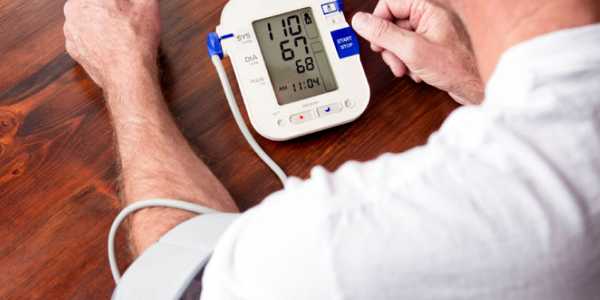7 Ways Exercise Can Boost Your Mental Health
Have you ever noticed how you feel better after a good workout? It's not just about getting fit anymore. More and more people are recognizing Exercise as a secret weapon for mental health.
It must just be running around and lifting dumbbells. Exercising can give your system a jolt. Changing your mood to enhance your concentration is like giving your cognitive engine a good oil change.

Here's the thing: You do not have to buy expensive clothes or join a gym to get these benefits. Exercise, or any form of movement, can be a path to a healthier mind.
Are you curious about how? Welcome to the right place. Here are seven ways Exercise can help boost your mental health.
Want to learn how an active body leads to an active mind? Let's begin!
The Power of Exercise for Your Mind
Stress, worry, and depression are joint in everyday life. That is why proper mind care is crucial in health maintenance.
Enter Exercise. This is not a fashion trend to get fit or shed extra pounds. People often underestimate how much moving your body can help not only your body but your mind as well.
When you make Exercise a habit, you're giving yourself a weapon. It assists you in coping with stress, increases your happiness level, and may improve your perception of yourself.
When one is mentally well, the rest of the body is also well. In other words, the spirit is well when the body is well. One works better, and one communicates better with people.
Many people have found that creating time to exercise is the secret to leading a happier and healthier life—physically and mentally.
Exploring the Mental Health Benefits of Exercise
Now that we know why exercise matters for our minds, let's dive into the details. Here are seven ways that getting active can boost your mental health. Each offers something unique, so you'll find a benefit that speaks to you.
1. Reduces Stress and Anxiety
When life gets hectic, Exercise can be your secret weapon against stress. It's like a natural chill pill for your body and mind.
Have you ever heard of "runner's high"? It's real, and it's not just for runners. When you exercise, your brain releases feel-good chemicals called endorphins. These little helpers can make you feel calmer and more relaxed.
Here's a quick list of stress-busting exercises to try:
● Yoga
● Brisk walking
● Swimming
● Dancing
Pick one that sounds fun to you. The best Exercise is the one you'll do!
2. Improves Mood and Fights Depression
Are you feeling down? Exercise might be just what the doctor ordered. Some studies show it can work as well as medicine for mild depression.
When you work out, your brain gets a boost of mood-lifting chemicals. It's like giving your mind a natural pick-me-up.
Take Sarah, for example. When she was feeling low, she started jogging three times a week. After a month, she noticed she was smiling more and enjoying life again. Small steps can lead to significant changes!
3. Enhances Cognitive Function and Memory
Exercise is good for your body and brain. Moving more gets your blood flowing, which helps your brain work better.
Regular physical activity can sharpen your memory and help you focus. It's like giving your brain and body a workout.

Different types of Exercise can help your brain in different ways. Here's a quick comparison:
Aerobic Exercise
● Boosts memory
● Reduces brain fog
● Increases creativity
Strength Training
● Improves focus
● Enhances problem-solving
● Builds mental resilience
4. Boosts Self-Esteem and Confidence
Setting and reaching fitness goals can make you feel good about yourself. It's not about looking like a movie star - it's about proving to yourself that you can do hard things.
You build confidence each time you finish a workout or hit a new personal best. These "I did it!" moments add up over time, making you feel stronger in all areas of life.
Want to boost your self-esteem through Exercise? Start small. It could be doing ten push-ups or walking for 15 minutes. Celebrate every win, no matter how small. You've got this!
5. Improves Sleep Quality
Have you ever noticed how a good workout can lead to a great night's sleep? It's not your imagination. Regular Exercise can help you fall asleep faster and sleep more soundly.
But timing is everything. Here are some tips for using Exercise to catch better Z's:
● Work out earlier in the day if possible
● Avoid intense Exercise right before bed
● Try some gentle stretching to wind down
Remember, better sleep means a happier, healthier you. So get moving to get snoozing!
6. Increases Social Interaction and Reduces Loneliness
Joining a class or sports team can help people make new friends easily since they spend much time together.
Having a partner or team you can exercise with is always good because it makes Exercise more interesting. Social support is also very good for your mental health.
It would help if you considered attending a group fitness class or participating in a sports team. There are always groups of people who walk for Exercise. Getting fit also means meeting some of the most amazing people you wouldn't want to miss out on.
7. Helps Manage Addiction and Recovery
For those battling addiction, Exercise can be a powerful ally. It provides a healthy way to cope with stress and cravings.
Physical activity can help reduce withdrawal symptoms and give you a natural "high" to replace unhealthy habits.
As John, a recovering addict, puts it: "Exercise became my lifeline. It gave me something positive to focus on and helped me stay strong when cravings hit. It's been a crucial part of my recovery journey."
Unlock Your Mind's Potential: Start Moving Today!
There are seven ways. Exercise will improve your mental health. Why must one wait to feel better when one can take control and start to feel better right now? Your mind and body are prepared for a change for the better.
Just think about the possibilities of what regular Exercise could do for you. Only let this day pass by giving yourself this small but meaningful gift.
Begin gradually, a few steps, some light shaking of limbs, or some movement to a song. The person you will be in the future will be grateful.
Frequently Asked Questions
Q: How much Exercise do I need to see mental health benefits?
Ans: Aim for 150 minutes of moderate or 75 minutes of vigorous Exercise per week. Even small amounts help, so start where you can and build up gradually.
Q: What types of Exercise are best for reducing anxiety?
Ans: Any exercise can help, but yoga, tai chi, and brisk walking are perfect. These combine physical movement with mindfulness, which can be incredibly calming.
Q: How long does it take to notice mental health improvements from Exercise?
Ans: Some people feel better right after exercising. For longer-term benefits, stick with it for a few weeks. You might notice improvements in mood, sleep, and stress levels within 4-6 weeks of regular Exercise.





